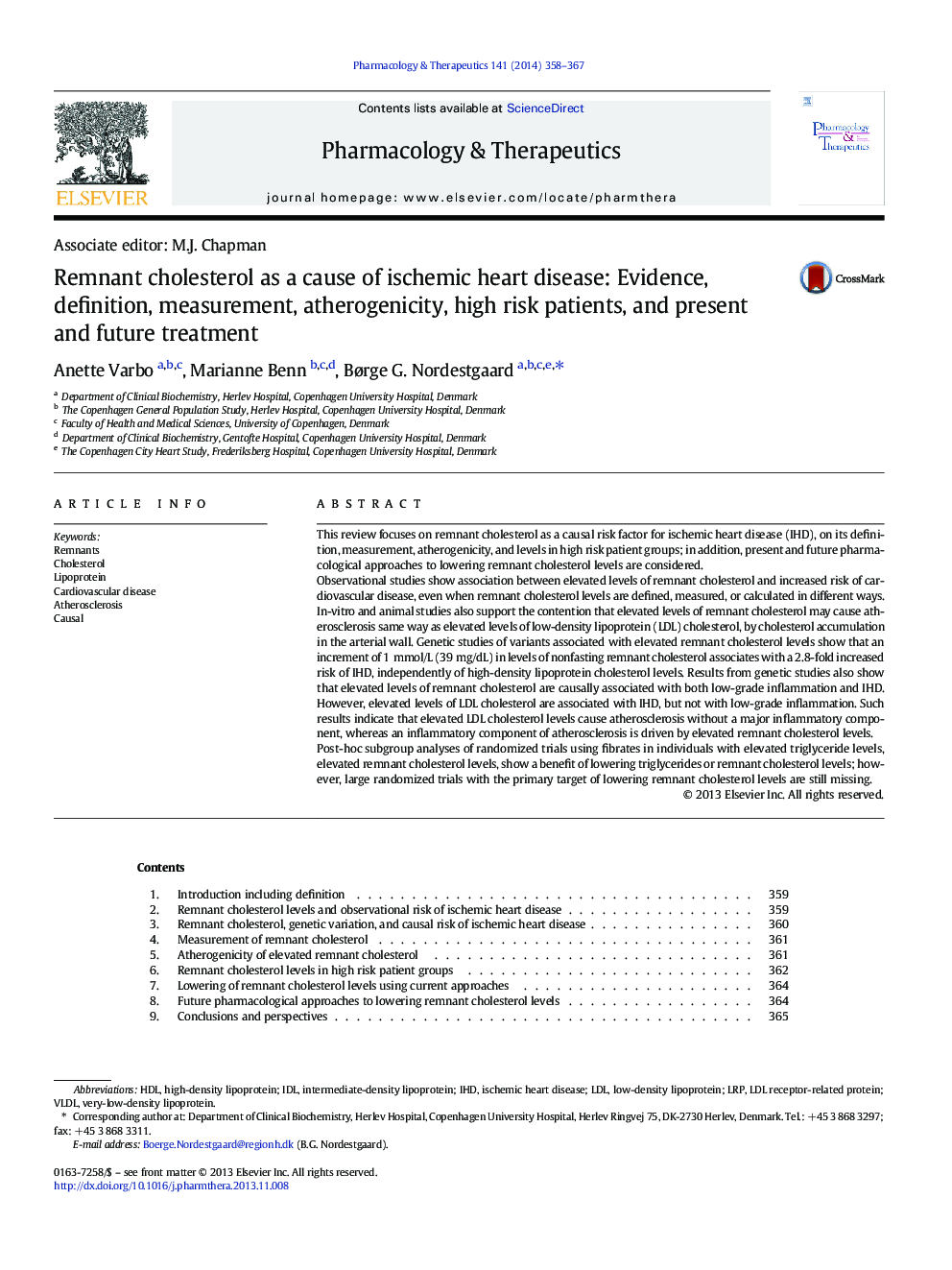| کد مقاله | کد نشریه | سال انتشار | مقاله انگلیسی | نسخه تمام متن |
|---|---|---|---|---|
| 2563806 | 1127566 | 2014 | 10 صفحه PDF | دانلود رایگان |
This review focuses on remnant cholesterol as a causal risk factor for ischemic heart disease (IHD), on its definition, measurement, atherogenicity, and levels in high risk patient groups; in addition, present and future pharmacological approaches to lowering remnant cholesterol levels are considered.Observational studies show association between elevated levels of remnant cholesterol and increased risk of cardiovascular disease, even when remnant cholesterol levels are defined, measured, or calculated in different ways. In-vitro and animal studies also support the contention that elevated levels of remnant cholesterol may cause atherosclerosis same way as elevated levels of low-density lipoprotein (LDL) cholesterol, by cholesterol accumulation in the arterial wall. Genetic studies of variants associated with elevated remnant cholesterol levels show that an increment of 1 mmol/L (39 mg/dL) in levels of nonfasting remnant cholesterol associates with a 2.8-fold increased risk of IHD, independently of high-density lipoprotein cholesterol levels. Results from genetic studies also show that elevated levels of remnant cholesterol are causally associated with both low-grade inflammation and IHD. However, elevated levels of LDL cholesterol are associated with IHD, but not with low-grade inflammation. Such results indicate that elevated LDL cholesterol levels cause atherosclerosis without a major inflammatory component, whereas an inflammatory component of atherosclerosis is driven by elevated remnant cholesterol levels.Post-hoc subgroup analyses of randomized trials using fibrates in individuals with elevated triglyceride levels, elevated remnant cholesterol levels, show a benefit of lowering triglycerides or remnant cholesterol levels; however, large randomized trials with the primary target of lowering remnant cholesterol levels are still missing.
Journal: Pharmacology & Therapeutics - Volume 141, Issue 3, March 2014, Pages 358–367
